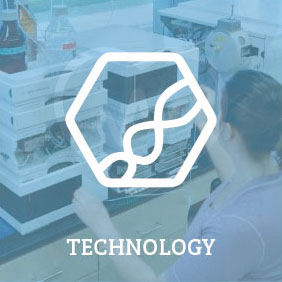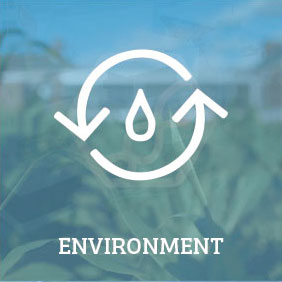Named after Illinois professor of microbiology Carl R. Woese, who discovered the third domain of life, the mission of the Carl R. Woese Institute for Genomic Biology (IGB) is to advance life science research at the University of Illinois Urbana-Champaign, meaningfully engage with the public to understand the impact of genomic research, and to stimulate bio-economic development in the state of Illinois. We do so by tackling grand challenges in fundamental and applied research with genomics and multi-disciplinary team science. The IGB was originally proposed at the dawn of the genomic era as the embodiment of a goal to centralize biological and biotechnological research at Illinois, a role that it continues to fulfill today as one of the largest comprehensive genomics institutes in the country. We are a research pioneer on the Illinois campus, hosting the first NIH Center for Excellence, the first major Bill & Melinda Gates Foundation grant with Realizing Increased Photosynthetic Efficiency (RIPE), the first research supported by the Simons Foundation, and the first ZEISS labs @ location in North America through our Core Facilities light microscopy suite. Our members conduct path-breaking genomic research to address societal issues in the areas of food security, energy, health, technology, and environmental conservation. View our full list of publications available on our research profile page, or learn more about our nationally recognized outreach and public engagement programs with partners such as the American Association for the Advancement of Science, the National Academy of Sciences, and the National Institutes of Health.
IGB members are drawn from many schools and departments, including biology, chemistry, physics, engineering, sociology, and business. Faculty and affiliate members remain an integral part of their home departments while also pursuing collaborative projects in thematic research groups at the IGB.
In each research theme, the common goal of a particular grand challenge in research—developing more effective cancer therapeutics, creating more efficient and robust food and fuel crops, uncovering the origins of life—creates synergy among diverse groups of scientists. Our work ranges from basic research that expands the horizons of human knowledge to applied research that builds on this foundational knowledge to create new technologies. Our complement of research themes is dynamic, adapting to new discoveries, methods, and needs. Anyone in our academic community can propose a new theme.
Themes
There are currently 15 research themes at the IGB:
- Anticancer Discovery from Pets to People
- Biosystems Design
- Center for Advanced Bioenergy and Bioproducts Innovation
- Center for Artificial Intelligence and Modeling
- Center for Genomic Diagnostics
- Center for Indigenous Science
- Environmental Impact on Reproductive Health
- Genomic Ecology of Global Change
- Gene Networks in Neural & Developmental Plasticity
- Genomic Security and Privacy
- Infection Genomics for One Health
- Microbiome Metabolic Engineering
- Mining Microbial Genomes
- Multi-Cellular Engineered Living Systems
- Regenerative Biology & Tissue Engineering
Partnerships
Genomics and Eco-evolution of Multi-scale Symbioses (GEMS)
The Genomics and Eco-evolution of Multi-Scale Symbioses (GEMS) Institute focuses on the classical species interaction between clover and honey bee pollinators as a model to understand the impact and dynamics of the myriad of microbes nested within them. The project takes an integrative approach to understand how molecular interactions impact the ecosystem.
HPCBio
High Performance Biological Computing (HPCBio) was created to address the need for a structure that could supply infrastructure, user support and training, and R&D capability in computational genomics to the Illinois research community. HPCBio provides a single, straightforward point of access, open to researchers from all campus units, helping them to find solutions to their biomedical data management and analysis problems.
Microbial Systems Initiative
The goal of the Microbial Systems Initiative (MSI) is to sustain a vibrant microbial sciences research and training enterprise at the University of Illinois Urbana-Champaign. Illinois microbial systems research addresses critical problems in health, agriculture, energy, and many other sectors. The MSI carries out ongoing activities to build collaboration across disciplines, provide world class training opportunities, and build environments of inclusive excellence.
Molecule Maker Lab Institute
The Molecule Maker Lab Institute (MMLI) is an interdisciplinary initiative with leaders in AI and organic synthesis intensively collaborating to create frontier AI tools, dynamic open access databases, and fast and broadly accessible small molecule manufacturing and discovery platforms. Advanced AI and machine learning (ML) methods enable the MMLI to achieve AI-enabled synthesis planning, catalyst development, molecule manufacturing, and molecule discovery.
Personalized Nutrition Initiative
The Personalized Nutrition Initiative is a campus-wide initiative under the leadership of the Office of the Vice Chancellor for Research and Innovation, in partnership with the IGB and the College of Agricultural, Consumer and Environmental Sciences, to facilitate transdisciplinary collaborative efforts across campus to answer fundamental questions regarding how nutrition modulates health and disease across the lifespan and to translate that information to clinical care and the public.
Research Portfolio
Our research portfolio as a whole spans three broad areas of research: health challenges and solutions, genomic technologies, and environmental resources and conservation. Learn more about how individual research themes connect to these areas by visiting the pages linked below.
 |
 |
 |
Faculty Committees
An important function our faculty provide to the IGB and the campus is devoting their time and leadership through service via committee on a variety of initiatives. We respect the effort this requires and appreciate our community's contributions to our continued success by serving on the following:
- Art of Science Public Talks
- DEI Advisory Group
- Genome Day Advisory
- IGB Executive Committee
- International Genetically Engineered Machine Competition (iGEM) Advisory
- Osher Lifelong Learning Institute Course Speakers (OLLI) Course and Speaker Coordination
- World of Genomics Activity Coordination